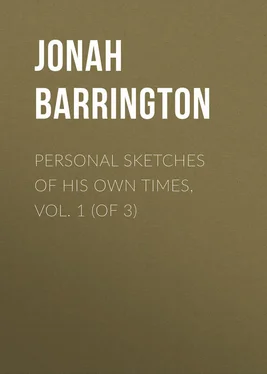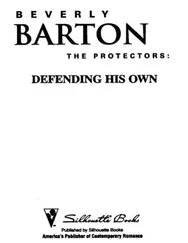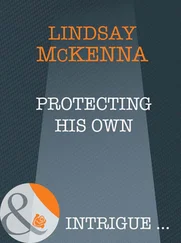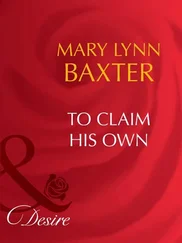Jonah Barrington - Personal Sketches of His Own Times, Vol. 1 (of 3)
Здесь есть возможность читать онлайн «Jonah Barrington - Personal Sketches of His Own Times, Vol. 1 (of 3)» — ознакомительный отрывок электронной книги совершенно бесплатно, а после прочтения отрывка купить полную версию. В некоторых случаях можно слушать аудио, скачать через торрент в формате fb2 и присутствует краткое содержание. Жанр: foreign_antique, foreign_prose, на английском языке. Описание произведения, (предисловие) а так же отзывы посетителей доступны на портале библиотеки ЛибКат.
- Название:Personal Sketches of His Own Times, Vol. 1 (of 3)
- Автор:
- Жанр:
- Год:неизвестен
- ISBN:нет данных
- Рейтинг книги:4 / 5. Голосов: 1
-
Избранное:Добавить в избранное
- Отзывы:
-
Ваша оценка:
- 80
- 1
- 2
- 3
- 4
- 5
Personal Sketches of His Own Times, Vol. 1 (of 3): краткое содержание, описание и аннотация
Предлагаем к чтению аннотацию, описание, краткое содержание или предисловие (зависит от того, что написал сам автор книги «Personal Sketches of His Own Times, Vol. 1 (of 3)»). Если вы не нашли необходимую информацию о книге — напишите в комментариях, мы постараемся отыскать её.
Personal Sketches of His Own Times, Vol. 1 (of 3) — читать онлайн ознакомительный отрывок
Ниже представлен текст книги, разбитый по страницам. Система сохранения места последней прочитанной страницы, позволяет с удобством читать онлайн бесплатно книгу «Personal Sketches of His Own Times, Vol. 1 (of 3)», без необходимости каждый раз заново искать на чём Вы остановились. Поставьте закладку, и сможете в любой момент перейти на страницу, на которой закончили чтение.
Интервал:
Закладка:
I ate a hearty breakfast, returned to Durrow, and, having rejoined my companion, we pursued our journey to Waterford, – amusing ourselves the greater part of the way with the circumstances just related, which, however, I do not record merely as an abstract anecdote, but, as I observed in starting, to show the manners and habits of Irish country society and sportsmen, 23even so recently as thirty-five years ago; and to illustrate the changes of those habits and manners, and the advances toward civilization, which, coupled with the extraordinary want of corresponding prosperity , present phenomena I am desirous of impressing upon my reader’s mind, throughout the whole of this miscellaneous collection of original anecdotes and observations.
CHOICE OF PROFESSION
The Army – Irish volunteers described – Their military ardour – The author inoculated therewith – He grows cooler – The Church – The Faculty – The Law – Objections to each – Colonel Barrington removes his establishment to the Irish capital – A country gentleman taking up a city residence.
My veering opinion as to a choice of profession was nearly decided by that military ardour which seized all Ireland, when the whole country had entered into a resolution to free itself for ever from English domination. The entire kingdom took up arms – regiments were formed in every quarter – the highest, the lowest, and the middle orders, all entered the ranks of freedom, and every corporation, whether civil or military, pledged life and fortune to attain and establish Irish independence, but with the same constitution, and under the same king as England, inseparably and for ever united. England tried to evade , as she could not resist this; but in 1782 Ireland was pronounced a free and independent nation.
My father had raised and commanded two corps – a dragoon troop called the Cullenagh Rangers, and the Ballyroan Light Infantry. My elder brother commanded the Kilkenny Horse, and the Durrow Light Dragoons. The general enthusiasm caught me; and before I well knew what I was about, I found myself a martinet and a red-hot patriot. Having been a university man, I was also considered to be of course a writer , and was accordingly called on to draw up resolutions for volunteer regiments all over the county. This was my first attempt at political subjects; and a general declaration which I wrote being short enough and warm enough to be comprehended by all the parties, it was unanimously adopted – every man swearing, as he kissed the blade of his sword, that he would adhere to these resolutions to the last drop of his blood, which he would by no means spare, till we had finally achieved the independence of our country. We were very sincere, and really, I think, determined to perish, (if necessary) in the cause – at least, I am sure, I was.
The national point was gained, but not without much difficulty and danger. The Irish parliament had refused to grant supplies to the crown or pass a mutiny bill for more than six months. The people had entered into resolutions to prevent the importation of any British merchandise or manufactures. The entire kingdom had disavowed all English authority or jurisdiction, external or internal; the judges and magistrates had declined to act under British statutes: – the flame had spread rapidly, and had become irresistible.
The British Government saw that either temporising or an appeal to force would occasion the final loss of Ireland: 150,000 independent soldiers, well armed, well clothed, and well disciplined, were not to be coped with, – and England yielded. 24Thus the volunteers kept their oaths: they redeemed their pledge, and did not lay down their arms until the independence of Ireland had been pronounced from the throne, and the distinctness of the Irish nation promulgated in the government gazette of London.
Having carried our point with the English, and proposed to prove our independence by going to war with Portugal about our linens, we completely set up for ourselves, except that Ireland was bound, as I before said, constitutionally and irrevocably, never to have any king but the King of Great Britain – whether de jure or de facto , however, was not specified.
We were now, in fact, regularly in a fighting mood; and being quite in good humour with England, determined to fight the French, who had threatened to invade us. I recollect a volunteer belonging to one of my father’s corps, (a schoolmaster of the name of Beal,) proposing a resolution to the Ballyroan Infantry, which purported, “that they would never stop fighting the French till they had flogged every sowl of them into mincemeat!” This magnanimous resolution was adopted with cheers, and was, as usual, sworn to, each hero kissing the muzzle of his musket. In truth, the whole nation being well prepared for blows; and disappointed, as a fellow-countryman gravely observed to me at the period, of fighting the English, were quite anxious to have a bout with the French: so long, indeed, as they could get a good meal of fighting, they were just then no great epicures as to who were served up .
I am not going any further into a history of those times, to which I have alluded only to show what, for the moment, excited my warlike ardour, and fixed my determination, although but temporarily, to adopt the military profession.
On communicating this decision to my father, he procured me, from a friend and neighbour, General Hunt Walsh, a commission in that officer’s own regiment, the 30th. The style of the thing pleased me very well: – but, upon being informed that I should immediately join the regiment, in America, my heroic tendencies received a serious check. I had not contemplated transatlantic emigration; and feeling that I could get my head broken just as well in my own country, I, after a few days’ mature consideration, perceived my military ardour grow cooler and cooler every hour – until, at length, it was obviously defunct. I therefore wrote to the General a most thankful letter, at the same time “begging the favour of him to present my commission in his regiment to some hardier soldier, who could serve his majesty with more vigour; as I, having been brought up by my grandmother , felt as yet too tender to be any way effective on foreign service – though I had no objection to fight as much as possible in Ireland, if necessary.” General Walsh accepted my resignation, and presented my commission to a young friend of his, (an only son) whose brains were blown out in the very first engagement.
Having thus rejected the army, I next turned my thoughts to that very opposite profession – the church. But though preaching was certainly a much safer and more agreeable employment than bush-fighting, yet a curacy and a wooden leg being pretty much on a parallel in point of remuneration, and as I had the strongest objection to be either dismembered or half starved, in the service of the king or the altar, I also declined the cassock, assuring my father that “I felt I was not steady enough to make an ‘exemplary parson;’ and as any other kind of parson generally did more harm than good in a country, I could not, in conscience, take charge of the morals of a flock of men, women, and children, when I should have quite enough to do to manage my own; and should therefore leave the church to some more orthodox graduate.”
Medicine was next in the list of professions to which I had, abstractedly, some liking. I had attended several courses of anatomical lectures at Dublin; and although with very repugnant feelings had studied that most sublime of all sciences, human organization, by a persevering attention to the celebrated wax-works of that university. Yet my horror and disgust of animal putridity in all its branches was so great, (inclusive even of stinking venison , which most people admire,) that all surgical practice by me was necessarily out of the question; and medicine, without a touch of surgery, presenting no better chance of making a fortune, shared a similar fate with the sword and the pulpit.
Читать дальшеИнтервал:
Закладка:
Похожие книги на «Personal Sketches of His Own Times, Vol. 1 (of 3)»
Представляем Вашему вниманию похожие книги на «Personal Sketches of His Own Times, Vol. 1 (of 3)» списком для выбора. Мы отобрали схожую по названию и смыслу литературу в надежде предоставить читателям больше вариантов отыскать новые, интересные, ещё непрочитанные произведения.
Обсуждение, отзывы о книге «Personal Sketches of His Own Times, Vol. 1 (of 3)» и просто собственные мнения читателей. Оставьте ваши комментарии, напишите, что Вы думаете о произведении, его смысле или главных героях. Укажите что конкретно понравилось, а что нет, и почему Вы так считаете.












